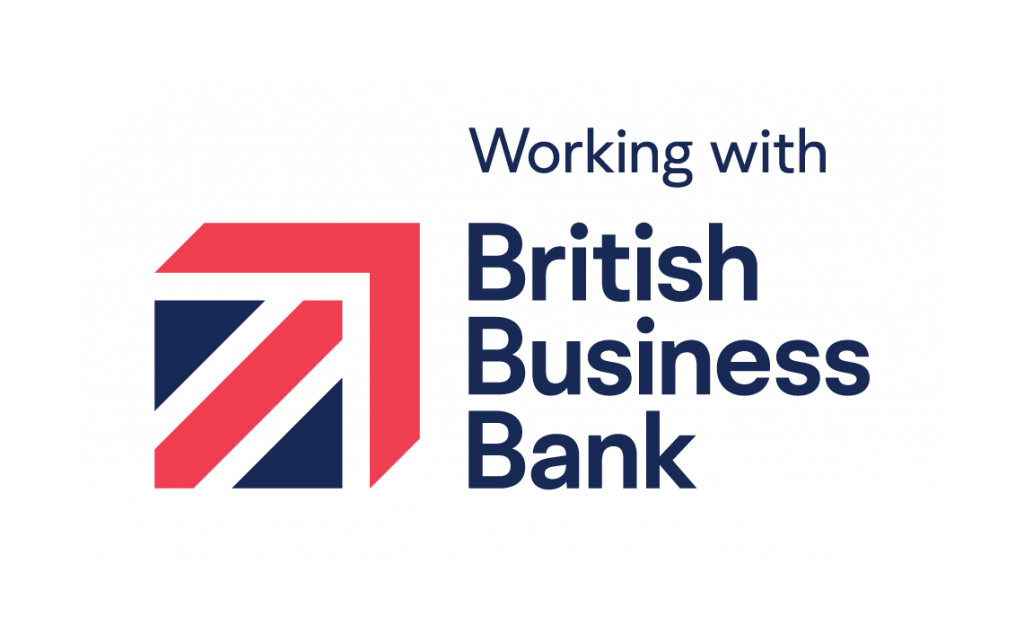Growth Guarantee Scheme

The successor scheme to the Recovery Loan Scheme, The Growth Guarantee Scheme (GGS) launched in July 2024 and is designed to support access to finance for UK small businesses as they look to invest and grow.
Businesses that took out a Coronavirus Business Interruption Loan Scheme (CBILS), Coronavirus Large Business Interruption Loan Scheme (CLBILS), Bounce Back Loan Scheme (BBLS) or a Recovery Loan Scheme (RLS) facility before 30 June 2024 are not
prevented from accessing Growth Guarantee Scheme, but borrowing under these schemes may reduce the maximum amount the borrower is eligible for.
Growth Guarantee Scheme-backed facilities are provided at the discretion of the lender. Lenders are required to undertake their standard credit and fraud checks for all applicants.
How can Finance For Enterprise support your business?
Finance For Enterprise may be able to provide access to lending to support your business if:
- You are looking to access business lending up to the value of up to £250,000
- Your business is based in :
- Yorkshire and The Humber
- East Midlands
- West Midlands
- North East
- North West
- Your application to GGS has been rejected by a traditional high street lender (for example, a bank)
Features of the Growth Guarantee Scheme:
- Up to £2m business group: The maximum amount of facility provided under the scheme is generally £2m per business group for borrowers outside the scope of the Northern Ireland Protocol, and up to £1m (or such other sums as notified from time to time by us to the lender in accordance with the relevant legal agreement(s)) per business group for Northern Ireland Protocol borrowers. Minimum facility sizes vary, starting at £25,001 for term loans. Finance For Enterprise is able to offer term loans of up to £250,000.
- Term length: Term loans facilities are available from three months up to six years.
- Wide range of products: The Growth Guarantee Scheme supports terms loan, overdrafts, asset finance, invoice finance and asset-based lending facilities. Not all lenders will be able to offer all products. Finance For Enterprise is able to offer term loans;
- Pricing: Interest rates and fees charged by the lender will vary and will depend on the specific lending proposal. The lender’s pricing will take into account the benefit of the Government guarantee and a fee that is charged to the lender for the guarantee.
- Personal Guarantees: Personal guarantees can be taken at the lender’s discretion, in line with their normal commercial lending practices. Principal Private Residences cannot be taken as security within the Scheme.
- Guarantee is to the lender: The scheme provides the lender with a 70% government-backed guarantee against the outstanding balance of the facility after it has completed its normal recovery process. The borrower always remains 100% liable for the debt.
- Subsidy: The assistance provided through GGS, like many Government-backed business support activities, is regarded as a subsidy and is deemed to benefit the borrower. There is a limit to the amount of subsidy that may be received by a borrower, and its wider group, over any rolling three-year period. Any previous subsidy may reduce the amount a business can borrow. Borrowers will need to provide written confirmation that receipt of the GGS facility will not mean that the business exceeds the maximum amount of subsidy they are allowed to receive. All borrowers in receipt of a subsidy from a publicly funded programme should be provided with a written statement, confirming the level and type of aid received.
- Northern Ireland Protocol: All borrowers will need to answer some questions to determine whether they are inside or outside the scope of the Northern Ireland Protocol, to determine the relevant subsidy limit and hence the potential maximum amount they can borrow under GGS.
Eligibility:
- Turnover limit: The scheme is open to smaller businesses with a turnover of up to £45m (on a group basis, where part of a group).
- UK-based: The borrower must be carrying out trading activity in the UK and, for most businesses, generating more than 50% of its income from trading activity.
- Viability test: The lender will consider that the borrower has a viable business proposition.
- Business in difficulty: The borrower must not be a business in difficulty, including not being in relevant insolvency proceedings.
- Purpose: the facility must be used to support trading in the UK and cannot be used to support certain export related activities. There are certain restrictions on the use of proceeds of facilities in the agriculture, fisheries and aquiculture, and road freight transport sectors for borrowers impacted by the Northern Ireland Protocol.
Please note: The following are not eligible under GGS:
- Banks, Building Societies, Insurers and Reinsurers (excluding Insurance Brokers)
- Public sector bodies.
- State-funded primary and secondary schools.
How to apply:
Please email: info@finance-for-enterprise.co.uk in the first instance and we will assign you with a dedicated Investment Manager to discuss your application.
Your application should be supported by a clear business plan, outlining the viability of your business, including financial forecasts and annual accounts.
Additional support for your business:
Finance For Enterprise delivers a wide range of tailored lending packages to suit businesses of all sizes. To find out more about how we can help you, call our team of dedicated Investment Management team on 0333 014 3455.
The British Business Bank’s Business Guidance pages have a range of guidance and resources for businesses, including information on how to manage your cashflow and where to find independent advice.

The Growth Guarantee Scheme is managed by the British Business Bank on behalf of, and with the financial backing of, the Secretary of State for Business & Trade. British
Business Bank plc is a development bank wholly owned by HM Government. It is not authorised or regulated by the PRA or the FCA.
Visit www.british-business-bank.co.uk/finance-options/debt-finance/growth-guarantee-scheme




